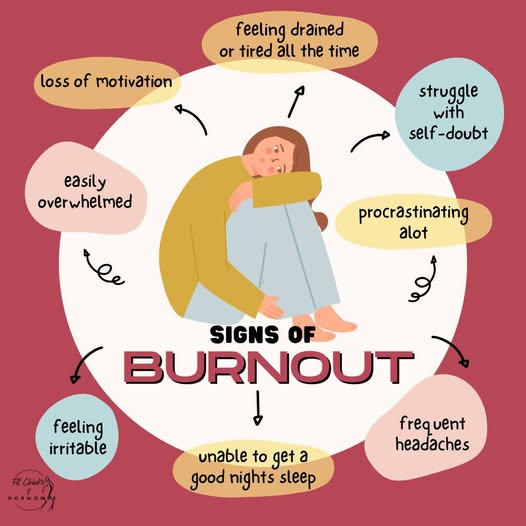Why does everything feel exhausting lately?

You wake up tired, push through the day on caffeine and willpower, and by evening, you’re running on fumes.
Motivation? Gone. Patience? Thin. Energy? Nowhere to be found.
If this sounds familiar, it’s not just “getting older” or “having too much on your plate”—it could be hormonal burnout.
During perimenopause and menopause, your stress hormones and sex hormones are in a constant tug-of-war.
As estrogen and progesterone fluctuate, cortisol (your stress hormone) tends to take over. The result? Your nervous system is constantly on edge, leaving you feeling drained, irritable, and overwhelmed.
Add in poor sleep, blood sugar swings, and the mental load of daily life, and your body simply can’t keep up.

So how do you break the cycle? Check out THESE things you may have not heard before!

Try mouth taping at night. It sounds weird, but gently taping your mouth before bed (with a skin-safe tape) encourages nasal breathing, which improves oxygen levels, calms your nervous system, and helps you get deeper, more restorative sleep.

Stimulate your vagus nerve. Dunking your face in cold water, gargling, or even humming can activate your parasympathetic nervous system (the “rest and digest” state) and reduce cortisol levels, making you feel calmer and more energized.

Add mineral-rich salt to your water. Low electrolytes can worsen fatigue and brain fog. A pinch of high-quality salt (like Celtic or Himalayan) in your water helps balance hydration and support adrenal function.

Stop over-exercising. If you’re constantly fatigued, high-intensity workouts might be making things worse. Swap some of that cardio for restorative movement like walking, yoga, or strength training with plenty of rest between sets.

Use magnesium topically. Magnesium is a powerhouse for relaxation, stress relief, and sleep, but many women struggle to absorb it well from supplements. Try a magnesium spray or lotion before bed to calm your nervous system and support deep sleep.

Get sunlight in the morning. Exposing your eyes to natural light within the first hour of waking helps regulate your circadian rhythm, balances cortisol levels, and can even improve mood and energy levels throughout the day.
Burnout isn’t just in your head—it’s in your hormones.
And the good news? Small, strategic shifts can help you feel like you again.





